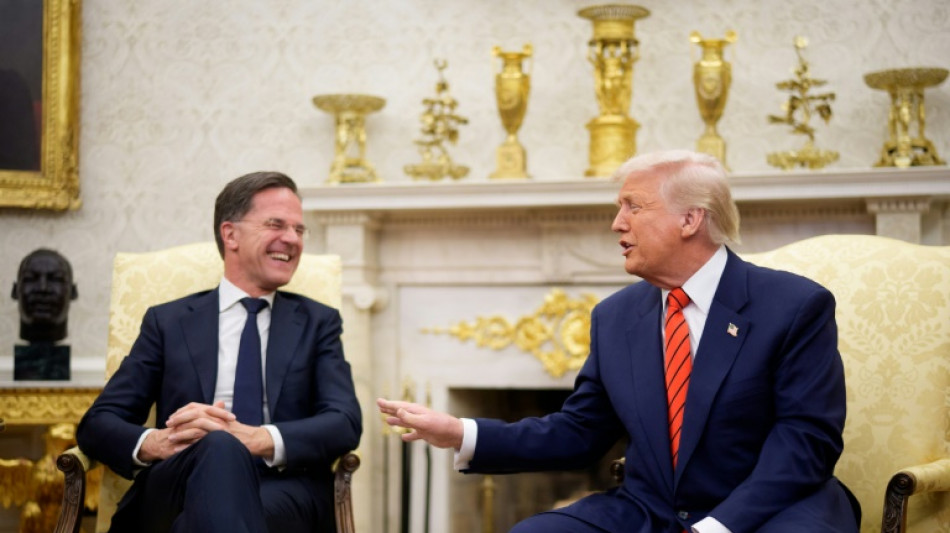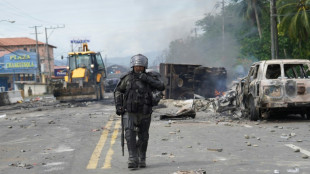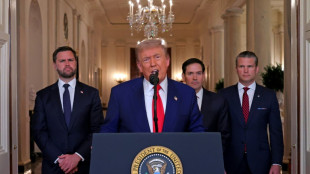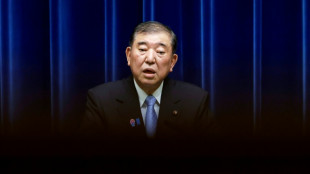

Flatterer-in-chief: How NATO's Rutte worked to win over Trump
When former Dutch Prime Minister Mark Rutte took over as NATO chief last year his primary task was clear: keep Donald Trump on board should he come back to power.
Now, on the eve of hosting his first alliance summit as boss in his hometown, The Hague, the veteran political operator seems on the verge of delivering.
With a combination of diplomatic finessing and a large dose of flattery, Rutte looks set to make the volatile US leader happy with a carefully crafted deal that meets Trump's demand for NATO allies to spend five percent of GDP on defence.
"He's been quite masterful in keeping the alliance together in a very difficult and sensitive period," a senior NATO diplomat said, speaking on condition of anonymity.
Rutte's tour de force was cooking up a compromise on spending that allows Trump to claim victory by hitting his headline five-percent figure, while in reality setting the bar lower.
The agreement sees countries promise to spend 3.5 percent of GDP on core military spending, while the other 1.5 percent goes to a looser array of areas like infrastructure and cybersecurity.
Getting a successful outcome for NATO, the transatlantic alliance forged during the Cold War, was by no means a given when Trump stormed back into the White House threatening allies he would not protect them if they did not cough up.
As Washington berated Ukraine, cosied up to Russia and opened the door to pulling forces from Europe, it set alarm bells ringing over the future of an alliance founded on US might.
Rutte's strategy has seemed relatively simple: never criticise or contradict the notoriously sensitive former reality TV star.
- Pain from Spain -
When Trump suggested Ukraine caused Russia's invasion: silence. When he yelled at Ukrainian President Volodymyr Zelensky in the Oval Office: no pushback. When he threatened not to protect allies: nothing to see here.
Instead, according to Rutte, Trump has been absolutely right to demand a quick end to the Ukraine war, has not called into question NATO's mutual defence ethos, and has actually made the alliance stronger by forcing allies to spend more.
All that courting appears to have paid off.
Diplomats say Rutte is one of only a handful of European leaders Trump willingly picks up the phone to and that the two text each other.
"Clearly the job is to keep the United States engaged as far as you can, even if it means that you have to sound a bit like Donald Trump occasionally," said Jamie Shea, a former senior NATO official now with the Chatham House think tank.
"So as long as that's the situation, I think allies will sort of turn a blind eye in Europe, at least to the occasional uses of Trumpian means and themes" by Rutte.
That does not mean European allies have always been comfortable with Rutte's performance -- with some at times accusing him of going too far to please Trump.
That very nearly ended up blowing up in Rutte's face when Spain's Prime Minister Pedro Sanchez threw a last-minute spanner in the works by baulking at the spending deal.
In the end though, Rutte again showed his diplomatic chops and managed to smooth over the kerfuffle with another sleight of hand that allowed all sides to claim they got what they wanted.
"Hats off to Rutte's artistry," said another NATO diplomat. "Once again we saw his touch."
P.King--VC







